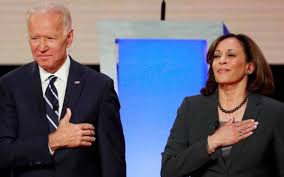Feature
Hockey Champions Trophy: Gutsy India settle for maiden silver medal
 London: India were pipped by reigning world champions Australia 1-3 via penalty shoot-out to settle for their maiden silver medal in the Hockey Champions Trophy here on Friday.
London: India were pipped by reigning world champions Australia 1-3 via penalty shoot-out to settle for their maiden silver medal in the Hockey Champions Trophy here on Friday.
After the 60 minutes of regulation play remained goalless in the final, Australian goalkeeper Tyler Lovell denied S.K. Uthappa, S.V. Sunil and Surender Kumar in the penalty shoot-out to drive Australia to their 14th Champions Trophy title — most by any side.
Harmanpreet Singh was the only scorer for India, while for Australia, Aran Zalewski, Daniel Beale, Simon Orchard succeeded. Indian goalkeeper P.R. Sreejesh could only deny Trent Mitton.
However, it was India’s best performance in the history of the tournament. India’s previous best performance in the Champions Trophy was a bronze medal in 1982.
India, up against the mighty Australians, put up a strong defensive display and showed good counter-attacking skills.
Mandeep Singh created the first potent chance in the ninth minute as his speedy run on the right caught the Australians off-guard. His shot at goalkeeper Andrew Charter was deflected to Uthappa but the latter employed a lethargic back-hand strike to waste it as the Australians were less in numbers in front of the goal.
Australia broke through the Indian defence in the very next minute, earning a penalty corner. But India saw off four back-to-back penalty corners and in their moment of turnover, earned two penalty corners but they did not bear fruit.
Australia mounted the pressure on India but the latter managed to stay strong, thanks to the heroics of central defender V.R. Raghunath. During a penalty corner defence, the ball kissed the legs of Uthappa, India’s final defender behind goalkeeper P.R. Sreejesh, resulting in a penalty stroke in the 18th minute. But Blake Govers hit it wide, much to the relief in the Indian camp.
India too earned two penalty corners before the half-time but Australian goalkeeper Andrew Charter denied V.R. Raghunath.
India upped the ante in the final few minutes of the third quarter with Mandeep Singh in the centre of the action. India launched a quick counter-attack after defending a penalty corner but Charter rushed out and halted Nikkin Thimmaiah.
Later, a by-line cross from Mandeep was deflected away by Jeremy Hayward, who then halted Chinglensana Singh’s speedy run.
Changed goalkeeper Tyler Lovell then was tested by a reverse-hand strike from Akashdeep Singh, whose direct shot was padded out of danger.
Both the teams tried their best but they failed to break the deadlock, taking the game to the shoot-out, where the Australians won and claimed the title for the seventh time in the last 16 years.
In the bronze-medal match, Marco Miltkau’s 40th-minute field goal gave Germany a 1-0 win over hosts Britain. It was the reigning Olympic champions’ seventh bronze medal.
The game was fiercely contested, with both sides having far more chances than the score-line would suggest.
Britain will rue their failure to register despite having 20 circle entries and 12 shots on target, six of which came in the first quarter.
The winning goal arrived in the third quarter, with 25-year-old striker Miltkau scoring his fourth goal of the tournament to seal the bronze medal and condemn the home favourites to a fourth place finish.
In the fifth-sixth classification match, Belgium showed great fighting spirit to fight back from 1-3 down to snatch a 4-3 win over South Korea, ensuring that they would not finish the event as the lowest placed team in the final standings.
A second period penalty corner from Simon Gougnard (20th minute) gave Belgium the advantage before South Korean legend Seo Jongho restored parity four minutes later.
A third quarter double from Yang Jihun put Korea into a commanding 3-1 lead, although strikes from Gougnard (49th), Tanguy Cosyns (53rd) and Florent van Aubel (54th) turned the result in favour of the Belgians.
Entertainment
Meghalaya Reserves Legalized Gambling and Sports Betting for Tourists

The State Scores Extra High on Gaming-Friendly Industry Index
Meghalaya scored 92.85 out of 100 possible points in a Gaming Industry Index and proved to be India’s most gaming-friendly state following its recent profound legislation changes over the field allowing land-based and online gaming, including games of chance, under a licensing regime.
The index by the UK India Business Council (UKIBC) uses a scale of 0 to 100 to measure the level of legalisation on gambling and betting achieved by a state based on the scores over a set of seven different games – lottery, horse racing, betting on sports, poker, rummy, casino and fantasy sports
Starting from February last year, Meghalaya became the third state in India’s northeast to legalise gambling and betting after Sikkim and Nagaland. After consultations with the UKIBC, the state proceeded with the adoption of the Meghalaya Regulation of Gaming Act, 2021 and the nullification of the Meghalaya Prevention of Gambling Act, 1970. Subsequently in December, the Meghalaya Regulation of Gaming Rules, 2021 were notified and came into force.
All for the Tourists
The move to legalise and license various forms of offline and online betting and gambling in Meghalaya is aimed at boosting tourism and creating jobs, and altogether raising taxation revenues for the northeastern state. At the same time, the opportunities to bet and gamble legally will be reserved only for tourists and visitors.
“We came out with a Gaming Act and subsequently framed the Regulation of Gaming Rules, 2021. The government will accordingly issue licenses to operate games of skill and chance, both online and offline,” said James P. K. Sangma, Meghalaya State Law and Taxation Minister speaking in the capital city of Shillong. “But the legalized gambling and gaming will only be for tourists and not residents of Meghalaya,” he continued.
To be allowed to play, tourists and people visiting the state for work or business purposes will have to prove their non-resident status by presenting appropriate documents, in a process similar to a bank KYC (Know Your Customer) procedure.
Meghalaya Reaches Out to a Vast Market
With 140 millions of people in India estimated to bet regularly on sports, and a total of 370 million desi bettors around prominent sporting events, as per data from one of the latest reports by Esse N Videri, Meghalaya is set to reach out and take a piece of a vast market.
Estimates on the financial value of India’s sports betting market, combined across all types of offline channels and online sports and cricket predictions and betting platforms, speak about amounts between $130 and $150 billion (roughly between ₹9.7 and ₹11.5 lakh crore).
Andhra Pradesh, Telangana and Delhi are shown to deliver the highest number of bettors and Meghalaya can count on substantial tourists flow from their betting circles. The sports betting communities of Karnataka, Maharashtra, Uttar Pradesh and Haryana are also not to be underestimated.
Among the sports, cricket is most popular, registering 68 percent of the total bet count analyzed by Esse N Videri. Football takes second position with 11 percent of the bets, followed by betting on FIFA at 7 percent and on eCricket at 5 percent. The last position in the Top 5 of popular sports for betting in India is taken by tennis with 3 percent of the bet count.
Local Citizens will Still have Their Teer Betting
Meghalaya residents will still be permitted to participate in teer betting over arrow-shooting results. Teer is a traditional method of gambling, somewhat similar to a lottery draw, and held under the rules of the Meghalaya Regulation of the Game of Arrow Shooting and the Sale of Teer Tickets Act, 2018.
Teer includes bettors wagering on the number of arrows that reach the target which is placed about 50 meters away from a team of 20 archers positioned in a semicircle.
The archers shoot volleys of arrows at the target for ten minutes, and players place their bets choosing a number between 0 and 99 trying to guess the last two digits of the number of arrows that successfully pierce the target.
If, for example, the number of hits is 256, anyone who has bet on 56 wins an amount eight times bigger than their wager.























